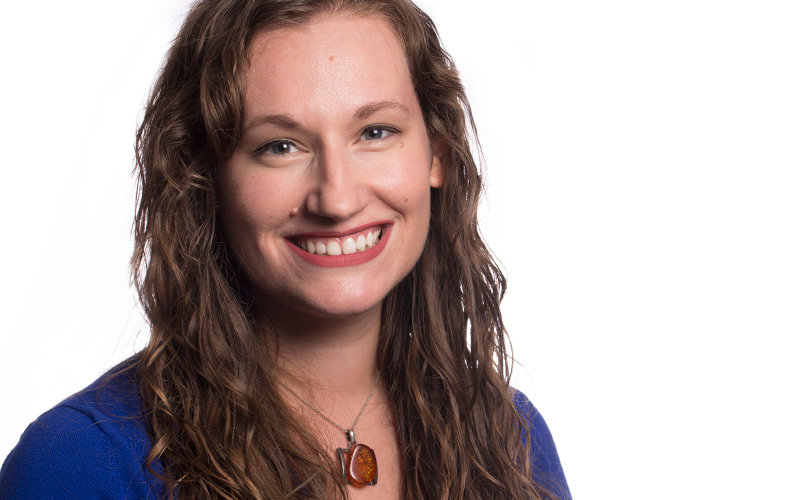
It’s not just David Bowie that appeals to Katherine Reed; it’s everything from trombone literature to musical semiotics. Still, the new assistant professor of music and performer’s most recent book project, “Hooked to the Silver Screen: David Bowie and the Moving Image,” was supported by a research fellowship at the Rock and Roll Hall of Fame library and archives in Cleveland, Ohio.
Reed holds a Ph.D. in musicology from the University of Florida, a master’s degree in trombone performance from the University of Missouri – Kansas City, and a bachelor’s of music from Youngstown State University. She joined the School of Music this fall.
What inspired you to pursue a career in music and teaching?
I was inspired by all the wonderful music teachers who changed my life. I was always the sort of child who loved school, but it was in my band, choir and music history classes that I became truly passionate about the material. In my music history courses in particular, my teachers blended their experience as performers with knowledge of the past to create vibrant, exciting courses. I already knew I wanted to teach, but it was in music history that I found a perfect balance of all my interests.
Why David Bowie?
My Bowie project is a really personal one. I first came to his music as a younger fan, and I connected with it in a way that I hadn’t experienced before. In my current work, I’m unpacking why his music, videos and acting carry such power — what is it about his performances and compositions that makes them different? Why did audiences feel his work so deeply that many mourned his death like they would a friend’s? My work in music and meaning is helping to build a deeper understanding of these songs and videos with which so many people connect on a personal, visceral level. Rather than demystifying Bowie and his work, I think this deep dive into how his art works can help us to appreciate its complexity and power anew.
What do you hope students get from your instruction?
I hope to spark an interest in my students — in the real, living people who make up our history of music, and in the ways that those stories can influence my students’ own work as performers, composers, educators and people. My goal is to help make this history come alive despite the chronological distance. Just as in other areas of history, musicology can inform so much of our current world.
What would you like the general public to know about musicology?
I’d love for the public to know how vital and relevant musicology can be. We musicologists study the history of music and how it works — that’s a part of each of our daily lives! I’ve been working to bring my own research to a broader audience through public musicology forums like the Avid Listener blog and the Society for American Music’s digital lectures series. In each, I hope to reach people who may not have thought about certain aspects of their everyday musical experience before.